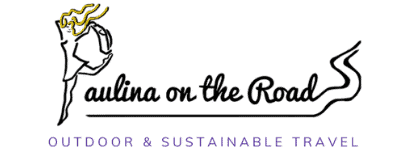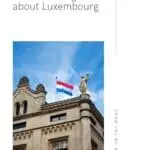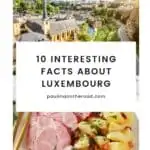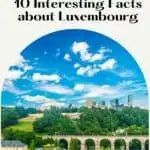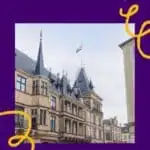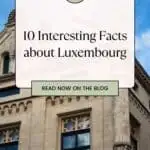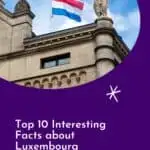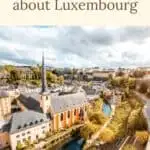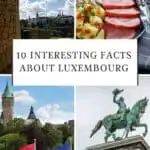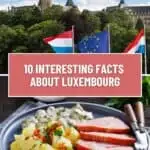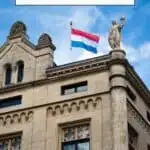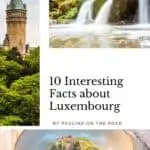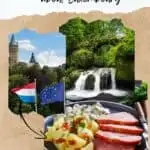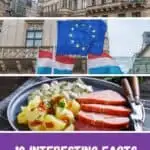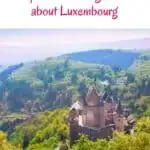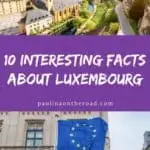As a born-and-bred Luxembourger, I have to say, this tiny country holds a huge place in my heart.
Growing up, I was surrounded by rolling green hills, charming villages with medieval houses (hello Echternach!), and the echoes of laughter bouncing off ancient castle walls.
Sure, we might be small, but traveling Luxembourg packs a punch when it comes to history, culture, and seriously good food.
Here’s the thing – you won’t find us on most tourist maps, but that’s our secret charm. Intrigued? Let me spill the beans on fascinating facts about Luxembourg that’ll have you itching to explore our hidden gems!

You, dear reader, support this blog. When you purchase through a link, I may earn a small commission. As an Amazon Affiliate, I earn from qualifying purchases.
Pssst…!!?? You can’t get enough of Luxembourg? Have a look at my other posts:
- Most beautiful places in Luxembourg
- Things to do in Luxembourg by night
- Panorama Cycling in Luxembourg
Table of Contents
1. Multilingual Population

Luxembourg must be one of the few countries where you’ll be confident to find a common language.
English is widespread, especially in the international business community, but the main languages used are Luxembourgish, French, and German.
Most Luxembourgers speak Luxembourgish as their mother tongue.
If you plan to visit Luxembourg, you’ll notice that most travel websites and tourist attraction guides are written in different languages.
Still, since French is commonly used in hotels, restaurants, and cafés, I suggest familiarizing yourself with some French words.
French is considered the sole authentic text in public administration, while German is typically read in print media and movie subtitle translations.
Don’t be surprised to hear more vocabulary, such as Italian, Portuguese, and Nordic languages. One of the fun facts about Luxembourg is that almost 50% of its population are foreign nationals.
2. The only Grand Duchy in the World
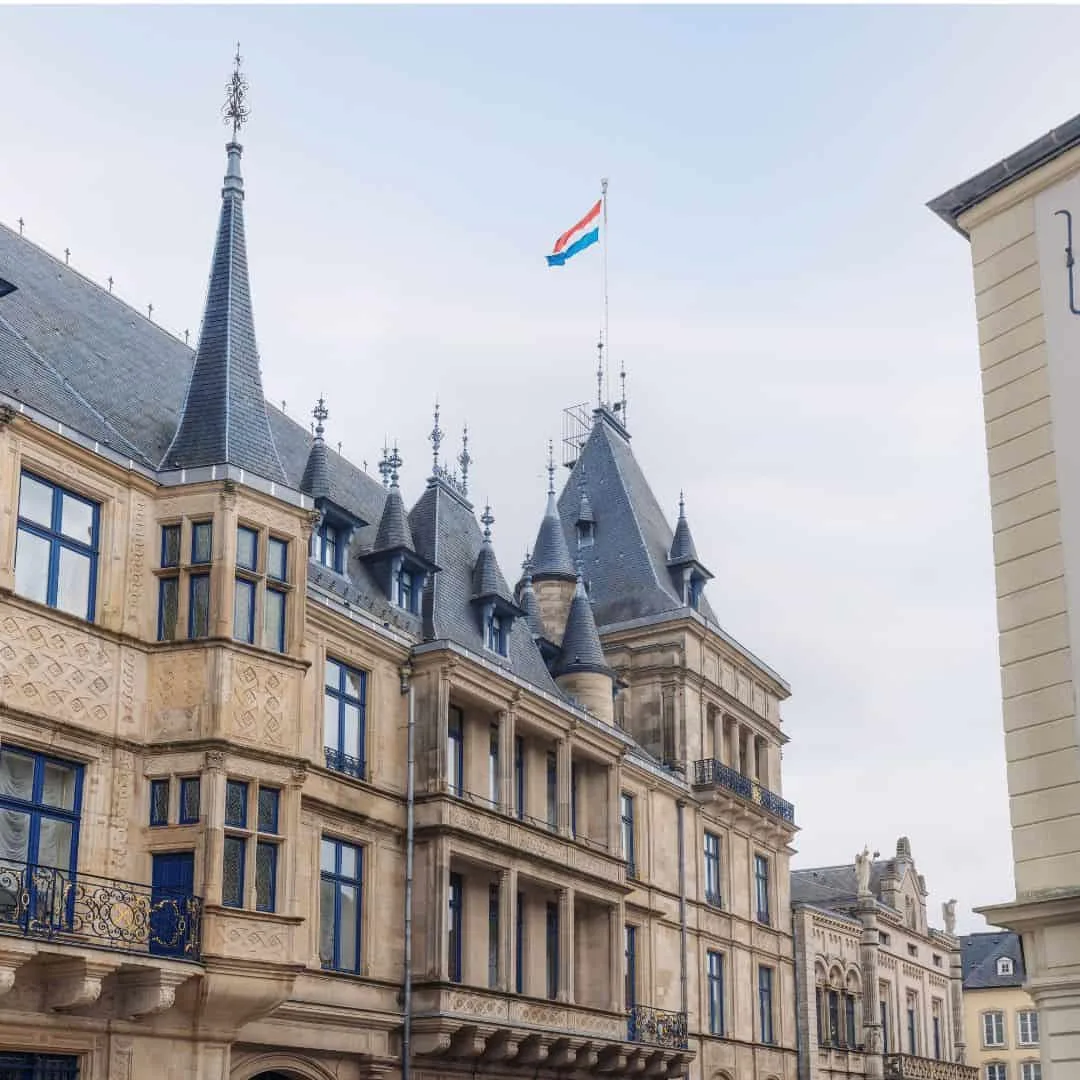
Something remarkable about Luxembourg is that it is the sole existing Grand Duchy in the world—a constitutional monarchy headed by a grand duke or duchess.
Grand Duchies in Europe were known to exist in the 13th century and became prominent in Western Europe in the 19th century after the fall of the Holy Roman Empire in 1806.
At the Congress of Vienna in 1815, the French Empire fell under Napoleon. Luxembourg was lifted to a Grand Duchy status under William I, the king of the Netherlands, while still part of the German Confederation.
On May 11, 1867, after several sovereign propositions and the abolition of the German Confederation, the Grand Duchy’s complete independence was confirmed, and its supreme power was granted to the House of Nassau.
3. Wealthy Nation
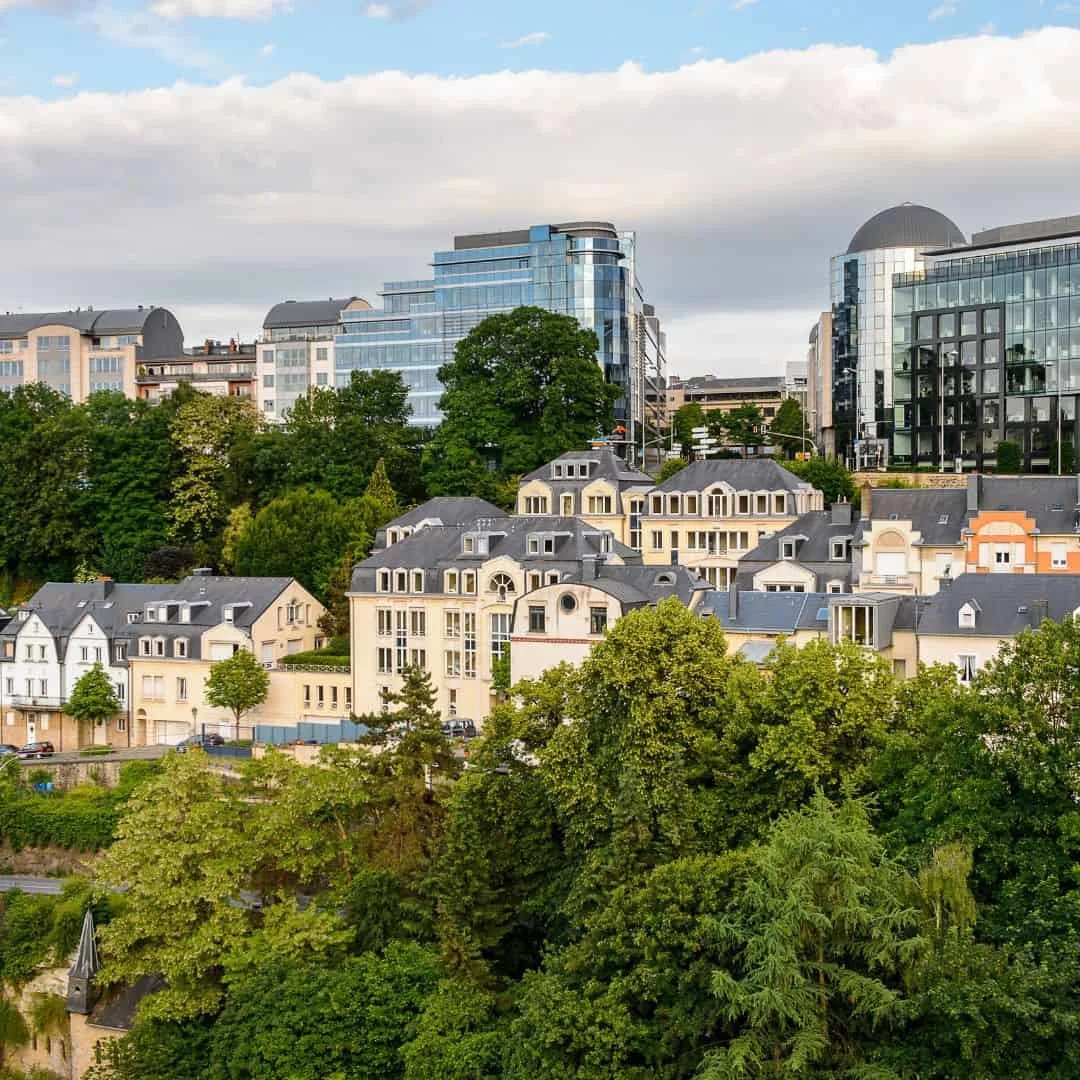
The current IMF report shows that Luxembourg is the wealthiest country in the world based on GDP per capita or the nation’s economic earnings per person.
Luxembourg’s economy flourished in the late 19th century through producing and exporting iron and steel. It was the Grand Duchy’s bread and butter industry until the steel crisis in the 1970s caused its decline.
With resiliency, and perhaps because of the government’s forward-looking tax policies, many financial corporations decided to put up offices in Luxembourg City before the turn of the 21st century.
The Grand Duchy became a vibrant financial center in Europe, making up 25% of the country’s GDP.
Furthermore, the country’s strategic location and economic performance have attracted more global companies, particularly in information technologies and e-commerce.
Here are some fun facts about Luxembourg: Skype and Amazon are among the prominent companies headquartered in Luxembourg.
Book Luxembourg City tours here
4. Green Heart of Europe
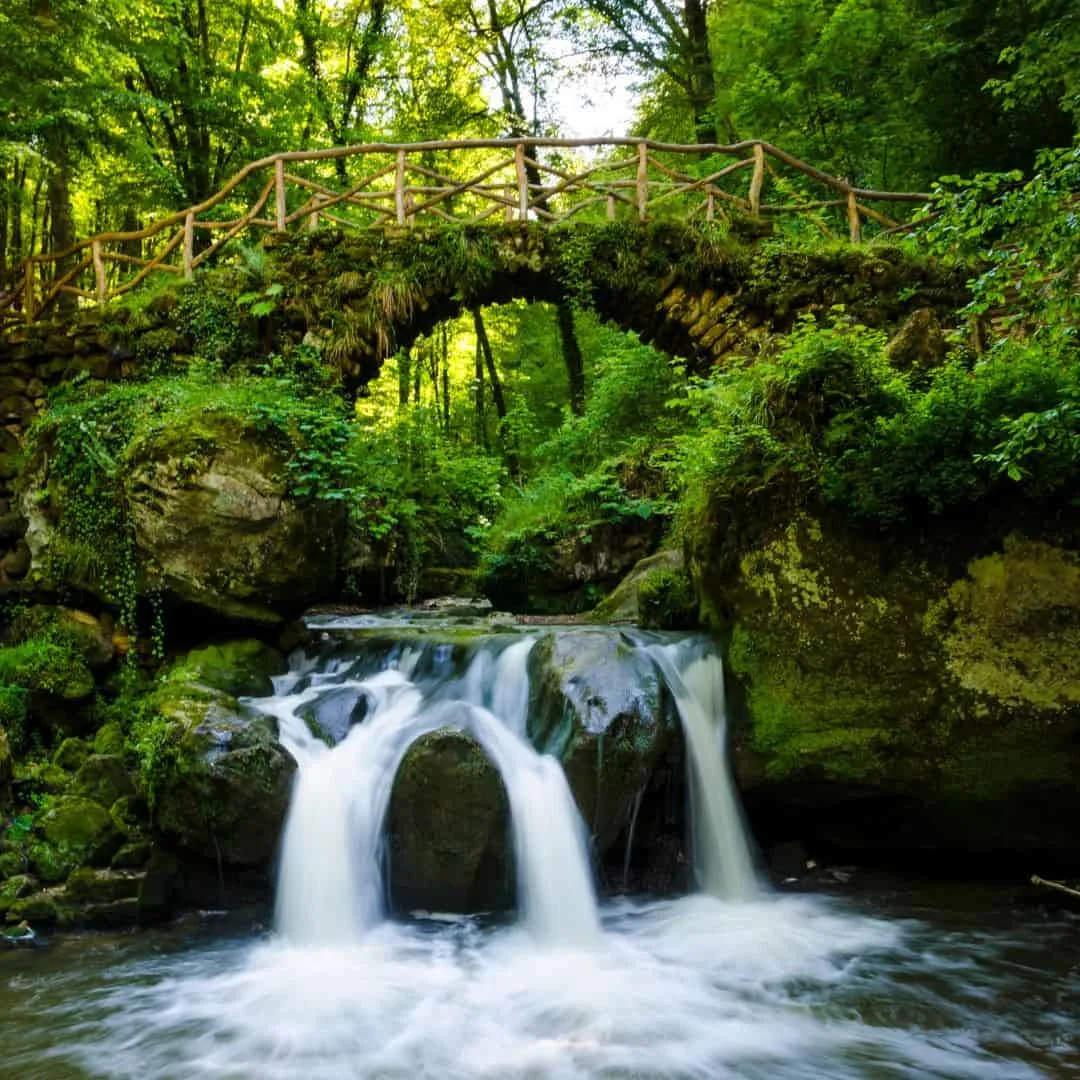
You’ll be close to nature anywhere in Luxembourg, which is why it’s often referred to as the Green Heart of Europe.
The city in the south boasts the green spaces of Pétrusse Valley Park and Parc Central.
The Ardennes regions of the north have dense forests and valleys with the remains of towering castles. In the east, I enjoy hiking the Mullerthal Trail through stunning rocky landscapes.
Despite modernity, which is also an attraction, the country has always retained its natural resources.
Luxembourg has invested in environmental management studies and efforts to promote sustainability in the economic sectors, including pollution, waste reduction, and energy conservation as an initiative to boost the economy while establishing value.
The government supported clean technology start-ups and businesses, such as sustainable construction, energy transition, and water and wastewater treatment, to fight climate change, conserve natural resources, and promote wiser spending.
Explore more green sceneries among your things to do in Mullerthal and Berdorf camping guide.
5. European Institutions
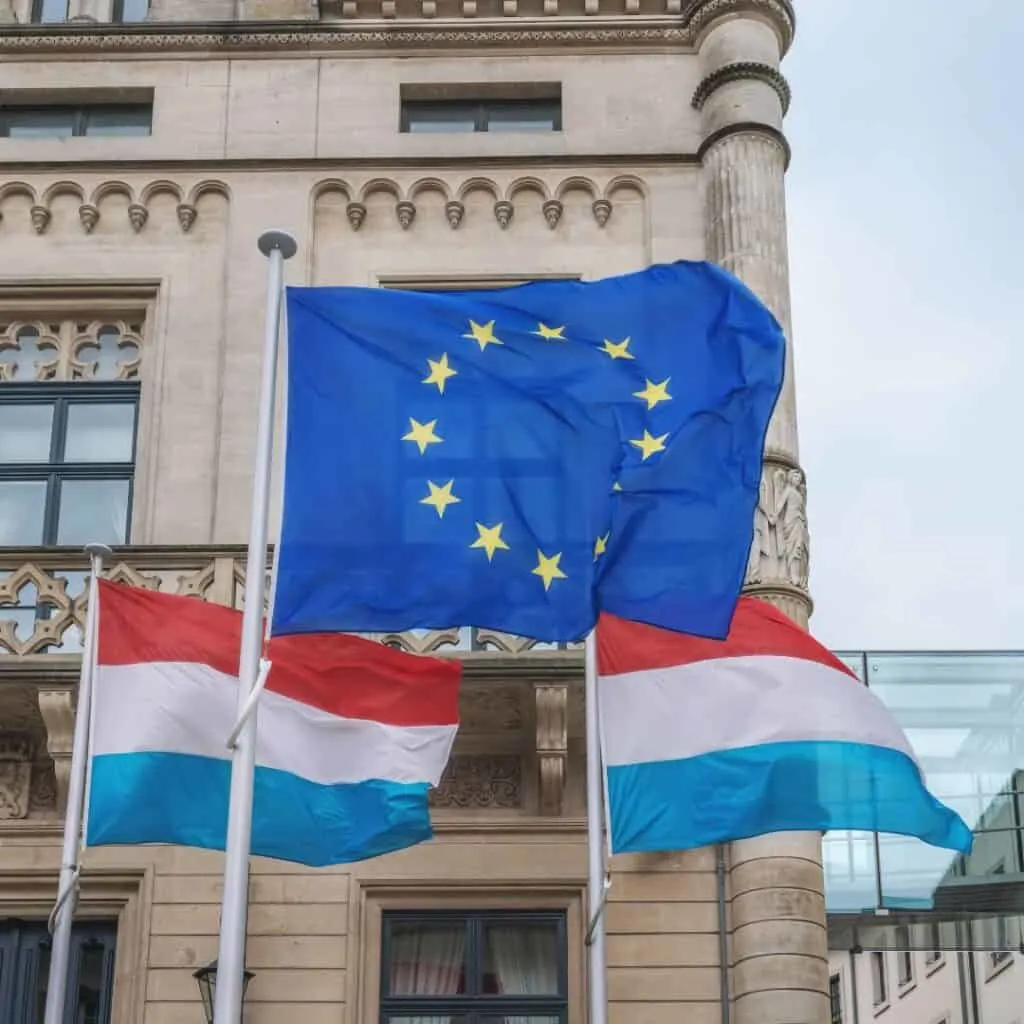
Luxembourg is home to several key European Union institutions, including the European Court of Justice and the European Investment Bank.
Luxembourg may have been seized by many states and ruling houses throughout history, but now, the nation hosts many international organizations, especially European Institutions—one of the Luxembourg history facts I take pride in.
The Grand Duchy is one of the founding members of Benelux, Belgium, and the Netherlands.
Later, it led to the establishment of the European Coal and Steel Community (ECSC) in 1952, which shifted its vision for the European Economic Community (EEC), and is now called the European Union.
Luxembourg’s multilingual advantage, active participation, and accessibility to its neighboring countries are significant factors that encouraged multilateralism.
Hence, many European institutions, particularly in financial and legal affairs, have their headquarters in Luxembourg.
6. Home to several UNESCO World Heritage Sites
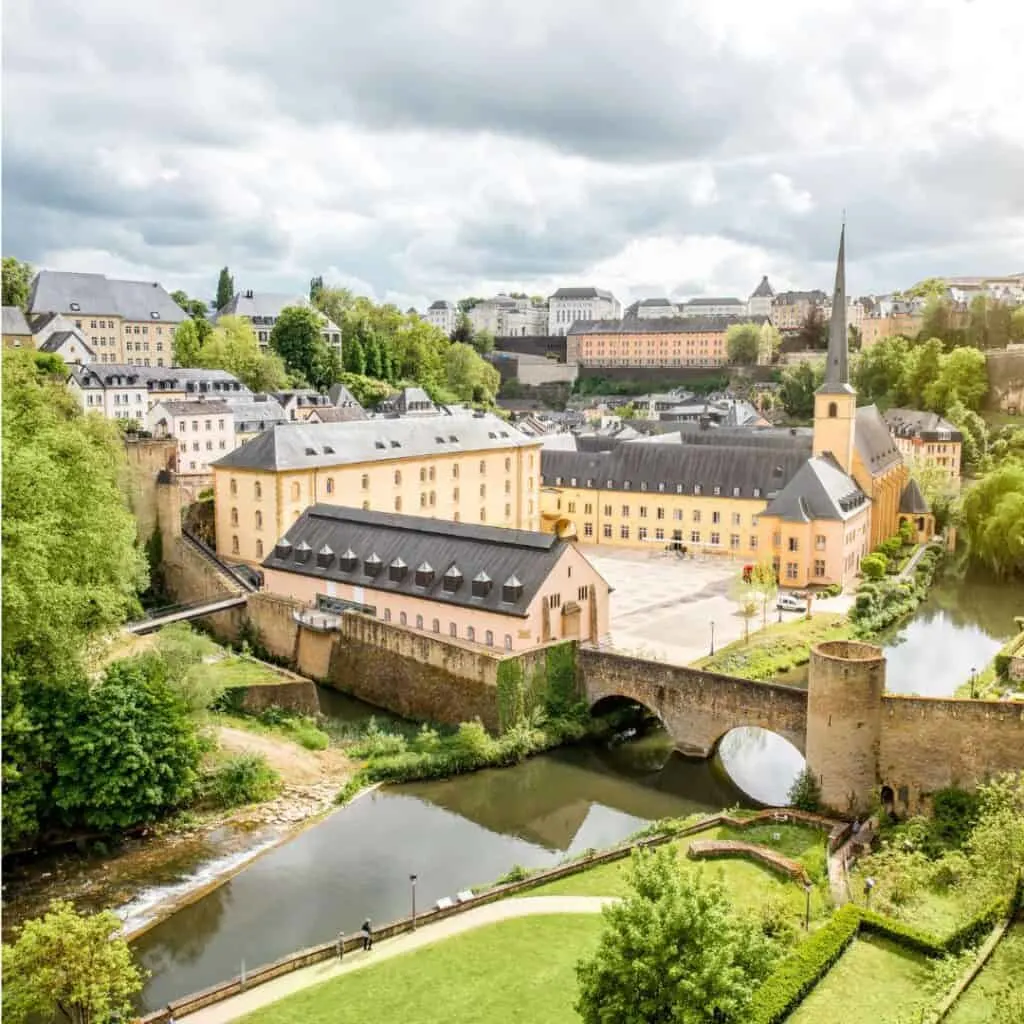
Luxembourg is modest in size yet well-endowed with cultural heritage. One of the fun facts is that Luxembourg was recognized for nine UNESCO heritages covering history, art, traditions, and nature.
Indeed, a beautiful remnant of the past, Luxembourg City’s Old Town and Fortifications did not miss UNESCO’s eyes for historical beauty.
It is one of Europe’s most fortified sites, featuring impressive military architecture. To admire this world heritage, check out where to stay in Luxembourg City.
Moreover, a unique addition to UNESCO’s global intangible heritage is the Dancing Procession of Echternach or Sprangpressessioun, held on Whit Tuesday in memory of St. Willibrord.
The tradition typically attracts 10,000 dancers annually, and I’d say that includes me since I was five years old. It’s a must-see on your list of things to do in Echternach!
Other distinctive heritage that UNESCO declared certified treasures are The Mëllerdall UNESCO Global Geopark and “The Family of Man” photography exhibition by Edward Steichen.
7. Home to Schengen Agreement
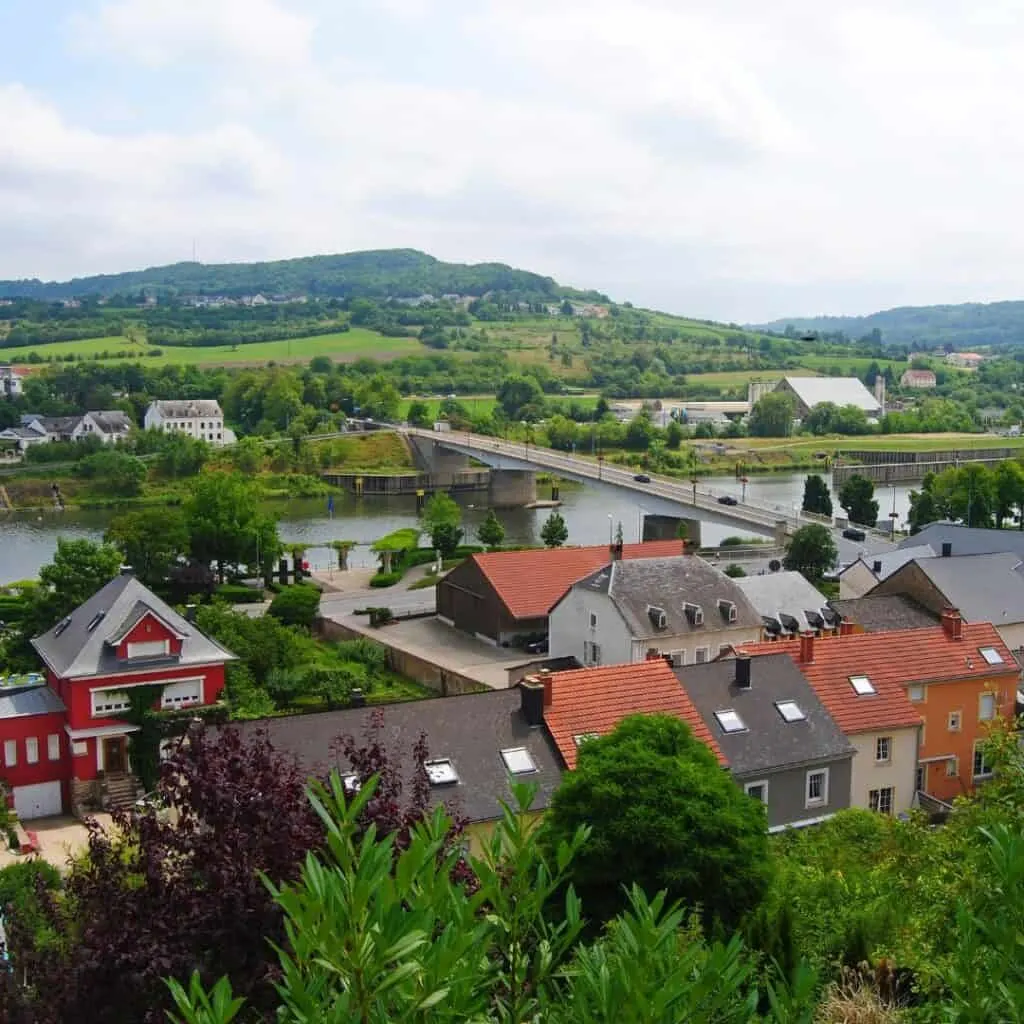
Did you know the agreement allowing free movement within EU countries was signed in Luxembourg?
It must be an interesting fact about Luxembourg you haven’t heard of, but the Schengen Agreement was named after a picturesque village in the Moselle region where it was signed—Schengen.
It was an international convention in June 1985, and Luxembourg was among the initial signatories who advocated passport-free travel between participating European countries.
Thus, citizens can travel, work, and live in another European country without special formalities or, specifically, being subject to border checks.
Among the interesting Luxembourg facts I always like to share is that non-European nationals living or visiting as tourists or legally present in a participating country can also enjoy the same rights as long as they meet the Schengen area entry requirements.
7. Free Public Transportation
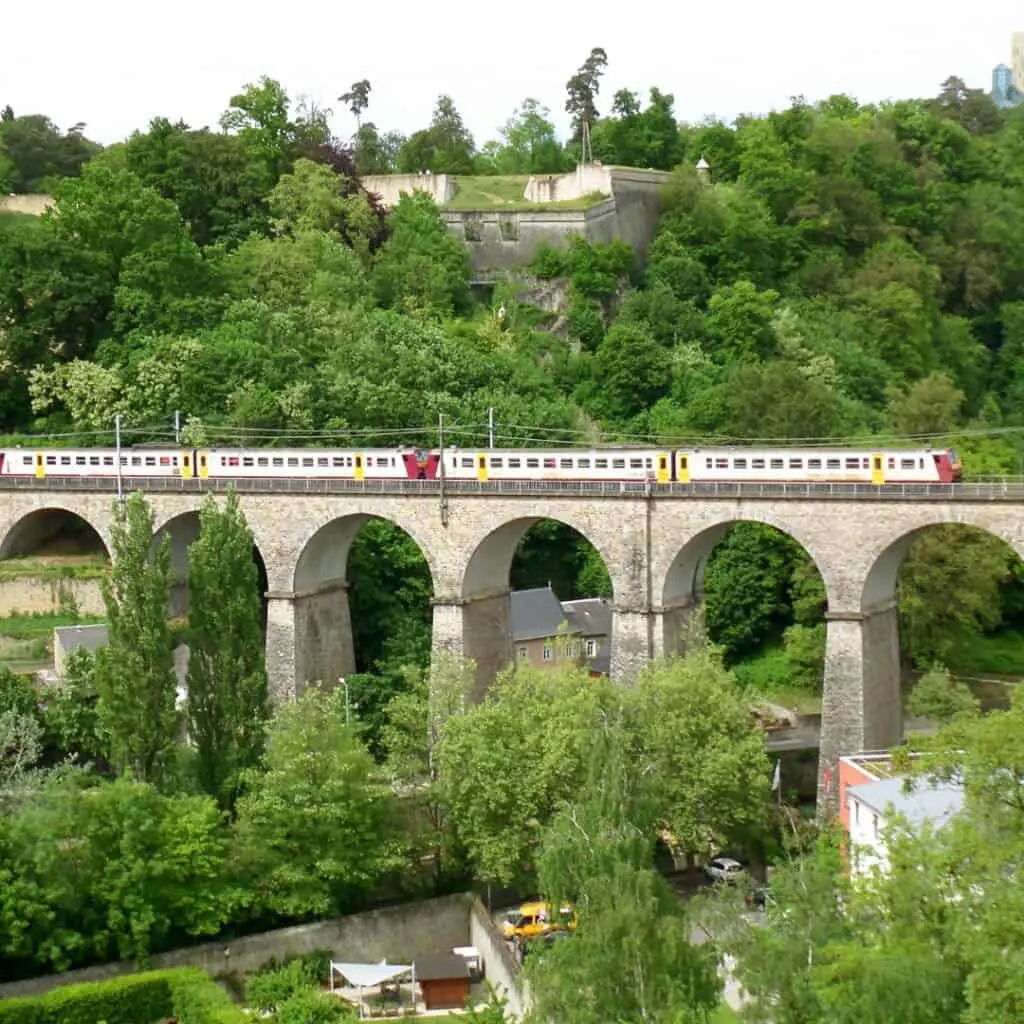
Can’t get enough of surprising facts on Luxembourg?
For all the holiday-makers out there, I have great news for you, Luxembourg offers free public transport, including trains, buses, and trams, for all passengers, residents, and tourists across the country.
The scheme started in February 2020 to address heavy traffic and high car emissions caused by Luxembourg’s high car density.
Passengers only need to pay or buy a ticket when they wish to travel first class or take a cross-border trip.
The free transport scheme is open to anyone who visits Luxembourg. It’s definitely one of the things I love the most about my home country! (and that pets are allowed in public transport too!)
9. Famous Luxembourgers

The Grand Duchy is the birthplace of famous personalities who made inspiring global contributions to arts, politics, literature, sports, and science.
I can’t miss the Nobel Prize winner Jules Hoffmann. He was born in Echternach and earned a doctorate in experimental biology.
In 2011, he and two American colleagues won the Nobel Prize in Physiology or Medicine for their discoveries relevant to activating innate immunity.
One of the coolest facts about Luxembourg for kids: Do you know that the father of science fiction Hugo Gernsbacher is from Luxembourg too?
Gernsbacher published the first science fiction magazine, “Amazing Stories” and he actually invented the word “science fiction.”
10. Luxembourgish Cuisine

Among the most interesting facts of Luxembourg is the Luxembourg traditional cuisine!
Our traditional recipes, based on a farming heritage blend of French, German, and Belgian influences, typically consist of fresh meat, fish, and vegetables with a splash of wine from local wineries.
Judd mat Gaardebounen, or Smoked Pork with Broad Beans, is a hefty and hearty dish prepared using the traditional method of preserving food or smoking meat.
Meanwhile, my favorite dish Kniddelen are homemade dumplings that go well with bacon lardons and apple compote.
Classic Luxembourg desserts, such as Rieslingspaschteit (Riesling Pie) and Quetschentaart (Plum Tart) are special delicacies you shouldn’t miss on your Christmas Markets in Luxembourg.
My Thoughts on Facts about Luxembourg
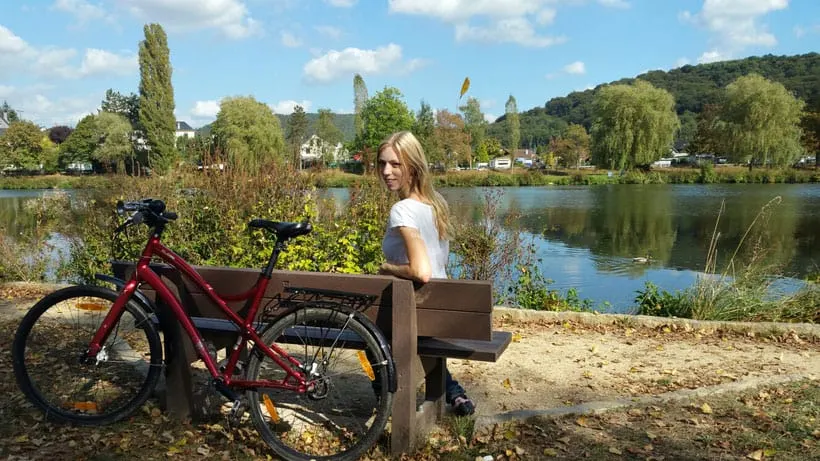
Luxembourg’s size and location could have been a disadvantage, but instead, it welcomed more cultures and even learned their languages.
Our open and dynamic culture makes Luxembourg unique and prosperous.
We move forward by adapting to what is presently in front of us but at the same time, take pride in our past by keeping traditions and taking care of our rich heritage.
Explore these amazing facts about Luxembourg and discover more hidden gems on your day trips from Luxembourg and where to stay in Luxembourg.

Hola! I’m Paulina, a seasoned travelette who crossed the Atlantic Ocean by Boat HitchHiking. On my blog, find expert insights for an extraordinary holiday through outdoor and sustainable travel like hiking, cycling, and sailing. Let’s embark on unforgettable journeys together! 🌍🚀
